Riddles have captivated our imaginations for centuries. These brain-teasing puzzles are woven into some of our most beloved myths, movies, books, and games. Far from being relegated to the realm of dusty old books, riddles continue to influence pop culture today.
Let’s unravel the enduring mystique of riddles and their evolution from ancient traditions to modern media.
Ancient Riddles Invade Storytelling
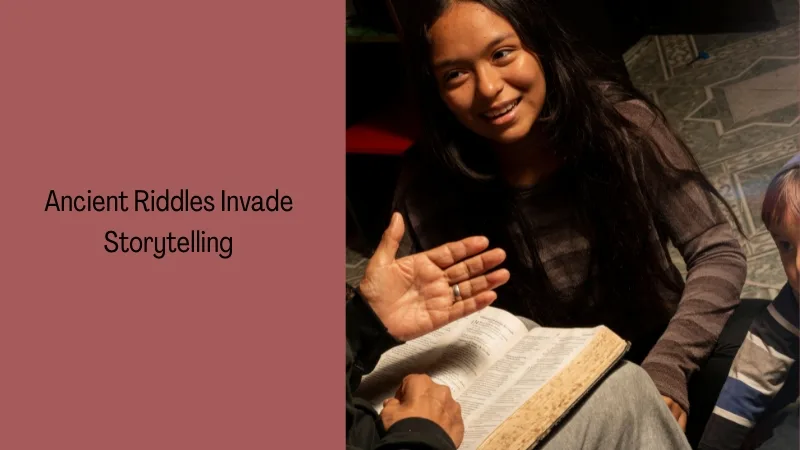
Riddles have been around for millennia. In many ancient cultures, riddles were seen as a test of intelligence and wisdom. Myths and folk tales are peppered with tricky riddles used to judge heroes and protect treasure.
One of the most famous riddlers comes from Greek mythology – the Sphinx. This legendary creature had the head of a woman, the body of a lion, and the wings of an eagle. She guarded the entrance to the city of Thebes, asking travelers a riddle to determine if they were worthy of passing. If they could not solve the riddle, the Sphinx strangled and devoured them.
Here’s the iconic riddle the Sphinx posed: “What walks on four legs in the morning, two legs in the afternoon, and three legs in the evening?” The hero Oedipus puzzled out the answer – a human being crawls on all fours as a baby, walks upright on two legs as an adult, and uses a cane as a third leg in old age. Outsmarting the Sphinx was no easy feat! Oedipus’ cleverness sealed his reputation as an intelligent leader.
Riddles have continued to pop up in myths and literature over the centuries. From Norse legend to J.R.R. Tolkein’s novels, riddles represent a fascinating battle of wits. The one who crafts the most perplexing riddle or deciphers the answer gains power and wisdom.
Silver Screen Riddles Thrill Audiences
Hollywood has eagerly picked up the tradition of high-stakes riddles. Raiders of the Lost Ark depicts Indiana Jones rationally working out riddles and puzzles to pass treacherous traps and reach hidden treasures. The suspense of watching him piece together clues grips viewers even today.
In more recent years, blockbuster fantasy franchises like Harry Potter and The Lord of the Rings have carried riddles over to the silver screen. Whether it’s decoding a cryptic message on the walls of Hogwarts or answering a riddle to enter the Mines of Moria, these movies show riddles as barriers between heroes and their quests. If they cannot think laterally and see through deception, they will fail. Solving riddles proves the characters’ competence, teamwork, and determination in thrilling cinematic settings.
Of course, we can’t leave out the villains’ proclivity for riddles! Batman’s foe The Riddler challenges the Caped Crusader to solve elaborate riddles laced with clues about his criminal plots. This adds a layer of fun for fans as they race to decipher the Riddler’s puzzles before Batman pieces them together. As a clever villain, the Riddler uses riddles to prove his intellect and demonstrate his scorn for Batman’s crimefighting abilities.
Fictional Characters Who Live for Riddles
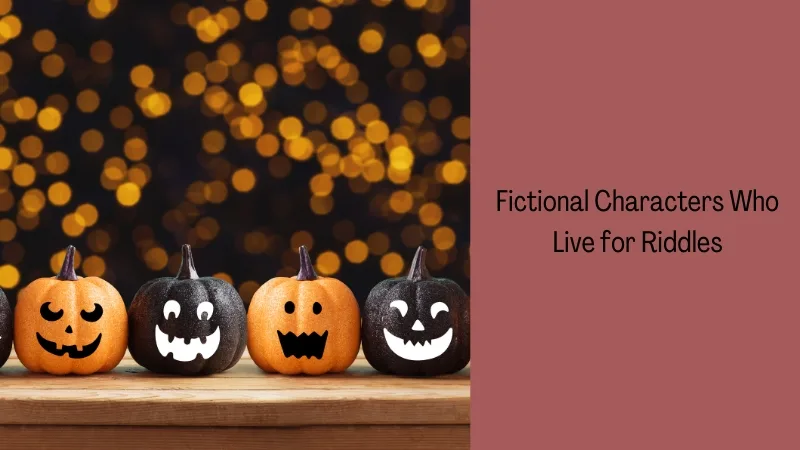
Beyond specific examples in film and literature, certain fictional personalities are intrinsically linked to riddling. Their love of puzzles is woven into their very characterization.
The Riddler, as already mentioned, builds his entire persona around confounding Batman with brain teasers. It’s an obsession rooted in narcissism – he wants to appear smart while making law enforcement look foolish. This quirky trait makes his criminal character compelling and distinct from Gotham’s other villains.
Similarly, Gollum from The Lord of the Rings derives solitary pleasure from riddling, spending hours alone under the mountains conversing with his split personalities and inventing cryptic poems. His facility with word puzzles complements his characterization as a pitiful, isolated creature corrupted by the Ring’s influence.
The ancient wizard Merlin also embraces riddling, using his magic and intellect to pose moral and philosophical questions. Being able to outmatch Merlin is presented as a marker of wisdom. Through figures like Merlin, Riddler, and Gollum, writers highlight how riddle-loving personalities use word games to show off their smarts, mock their enemies, or wrestle with inner turmoil.
Riddles as Plot Devices and Immersive Story Elements
Riddles serve an important function beyond just characterization – they propel plots forward and immerse audiences in story worlds.
The tension of unraveling riddles gives pacing and suspense to narratives. The Sphinx’s lethal riddle raised the stakes for Oedipus’ journey home. Modern tales also use riddles as a ticking clock, with characters racing to decipher codes before catastrophe ensues. Dan Brown’s novels like Angels & Demons are prime examples.
Moreover, riddles draw audiences into an experience of active problem-solving vs. passive watching. We get invested in solving the puzzle along with characters we identify with. Riddles invite us to play along; it engages our agency as an audience.
Modern writers have expanded the use of riddles from discrete puzzles to immersive storytelling elements. For example, Lemony Snicket’s Series of Unfortunate Events is structured around meta-riddles. The books are framed as decryption challenges for the reader to unpack the Baudelaire children’s elusive past and understand Count Olaf’s conspiracy. Riddling becomes a storytelling mode more than an isolated plot device.
Interactive Riddles for the Digital Age
Pop culture riddles have evolved along with technology. The digital age has opened up new media for interactive riddles that test our wits in exciting ways.
Escape rooms have become massively popular around the world as social, in-person riddle-solving experiences. Players immerse themselves in fictional worlds, cracking codes and clues to escape within a time limit. It’s the classic appeal of riddles combined with an experiential element.
Video games have also advanced riddling to new levels. Franchises like Professor Layton blend puzzle-solving with graphic adventures. Players feel like protagonists in their own riddle quest. The Assassin’s Creed series is another prime example, requiring players to solve convoluted riddles and puzzles to unlock ancestry secrets, make sense of memories, and follow assassin targets.
Apps like Find the Escape-Men put a modern spin on classic conundrums with visually-striking designs. Users can tackle thousands of riddles on their phones ranging from wordplay brain-teasers to interactive puzzles. Developers keep innovating on how technology can enhance riddle engagement.
The Timeless Allure of Riddles
While riddling has changed forms over millennia, the foundation remains the same – this battle of wits appeals to our primal desire to solve mysteries and prove our intelligence. Riddles allow us to feel the thrill of locked doors swinging open as an answer clicks in our minds.
Pop culture keeps reinventing riddles, but they still capture our imagination much like the Sphinx entrapped travelers outside Thebes. There is something profoundly satisfying about unraveling deceptive words and confronting our own limitations. Riddles challenge us, tell stories, and above all highlight the wonders of human ingenuity.
That ageless allure ensures riddles will continue to emerge in fascinating new ways across our myths, media, and real-life experiences.
FAQ
What are some examples of ancient riddles outside of Greek myths?
Riddles appear in folklore and mystical tales across many ancient cultures. For example, in Norse mythology, Odin poses riddles to win the Mead of Poetry. Biblical Samson uses a riddle to set a challenge for Philistine guests at his wedding. Anglo-Saxon riddles were popular literary puzzles involving metaphorical descriptions of objects and animals.
Do any modern songs feature riddles in their lyrics?
Yes, many songwriters have played with the concept of riddles in their lyrics. Tom Waits’ song “What’s He Building?” is written in a riddle format. Other examples include “The Riddle” by Five for Fighting, “Riddle” by Steve Harris, and “Tell Me Why” by the Beatles. These songs tend to use riddles as a poetic device to share messages and tell stories.
What are some examples of riddle video games besides Professor Layton and Assassin’s Creed?
Popular riddle video games include the Nancy Drew adventure mystery series, LIMBO, Fez, Braid, Portal, Obduction, The Witness, and the Sphinx series. Many RPG and puzzle games integrate riddles as a key interactive mechanic within gameplay. Adventure games especially use environmental and inventory-based riddles to drive the narrative forward.
Why do people seem to intrinsically enjoy puzzles and riddles so much?
Psychologists propose several reasons why humans enjoy mental challenges like riddles. Solving puzzles provides a sense of satisfaction and achievement. Riddles allow us to exercise our problem-solving skills and test our knowledge in a novel, stimulating way. The “Aha!” moment when the answer clicks boosts dopamine. Riddles also build connections in our brain. Furthermore, cracking riddles gives people a competitive edge or demonstration of intelligence.
How can modern writers continue to use riddles creatively in storytelling?
Plenty of room for innovation remains in using riddles for exposition, character development, plot twists, and audience engagement. Writers can incorporate multimedia riddles involving visuals, apps, and ARG elements. Riddles can be fractured across narratives in transmedia storytelling. AI could even generate personalized riddles tuned to readers’ interests to unlock bonus content. The possibilities are wide open.
Conclusion
Riddles are firmly ingrained in our cultural DNA. These puzzles in pop culture take us on journeys of imagination, building suspense, showcasing intellect, and encouraging participation. Whether it’s grappling with the Sphinx’s lethal question or racing to beat a video game puzzle, riddles engage minds across generations. These challenges tap into our innate curiosity and competitive spirit. Far from fading away, riddles continue to evolve in our stories, songs, digital experiences and real-life mystery solving. By tempting us to crack complex codes and make lateral connections, riddles reveal the human urge to conquer puzzles and master the unknown. We need these enigmas that spark frustration, delight, and sudden insight. So long live the riddle! Let’s see what ingenious new forms these puzzles take as storytellers continue to reinvent this ancient art.

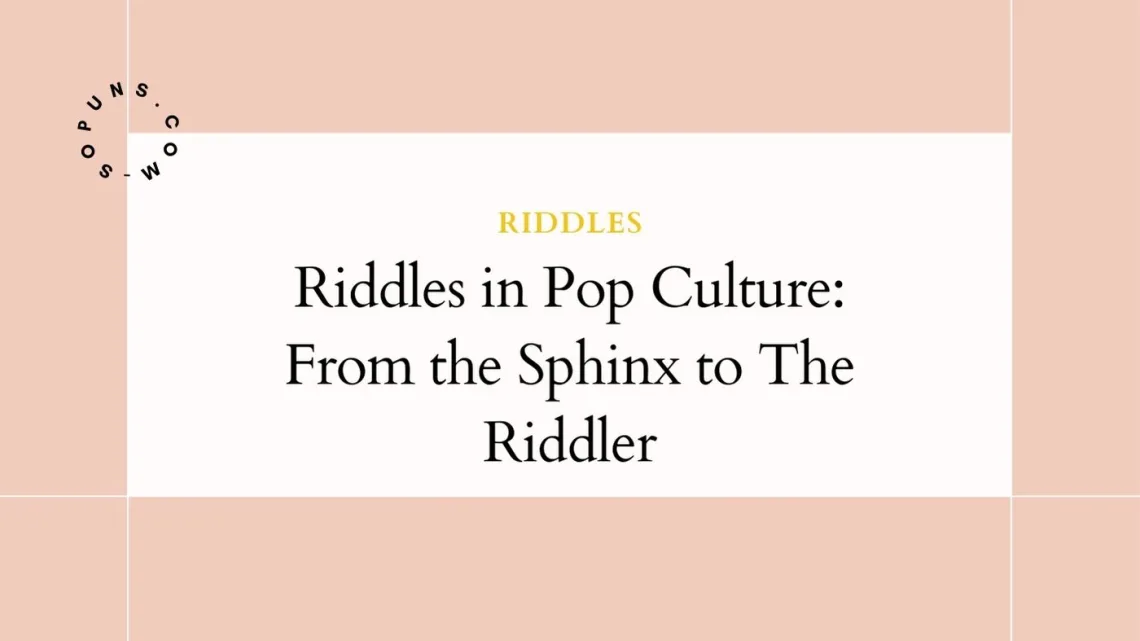
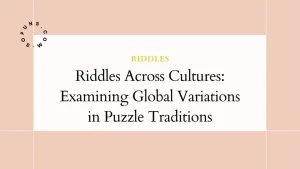
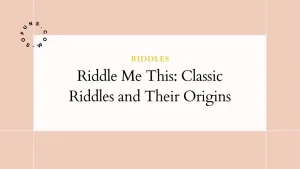
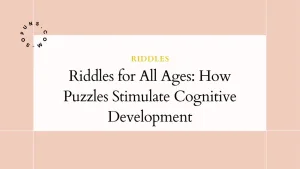
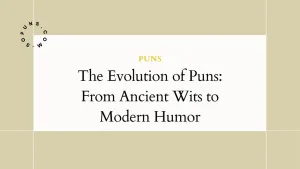
No Comments